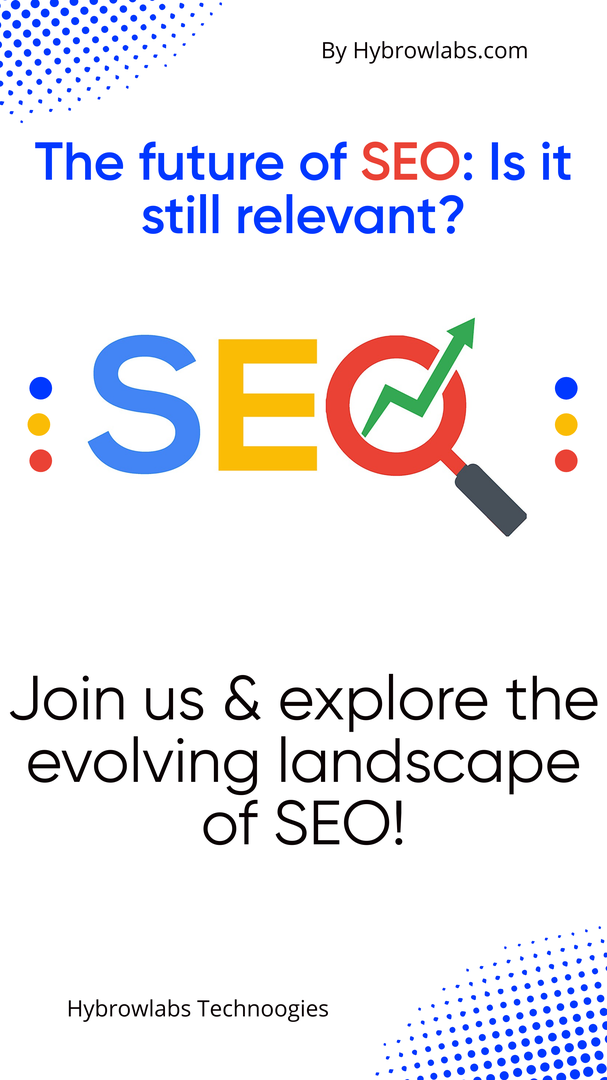
Search Engine Optimization (SEO) has been a critical tool for digital marketers to drive website traffic & boost search engine rankings. However, with the advent of new search engines like Bing, Bard & ChatGPT, the SEO landscape is rapidly evolving. So, what does the future hold for SEO? Is it still relevant? In this article, we'll explore the changing landscape of SEO & discuss its relevance in today's digital world.
Definition of SEO:
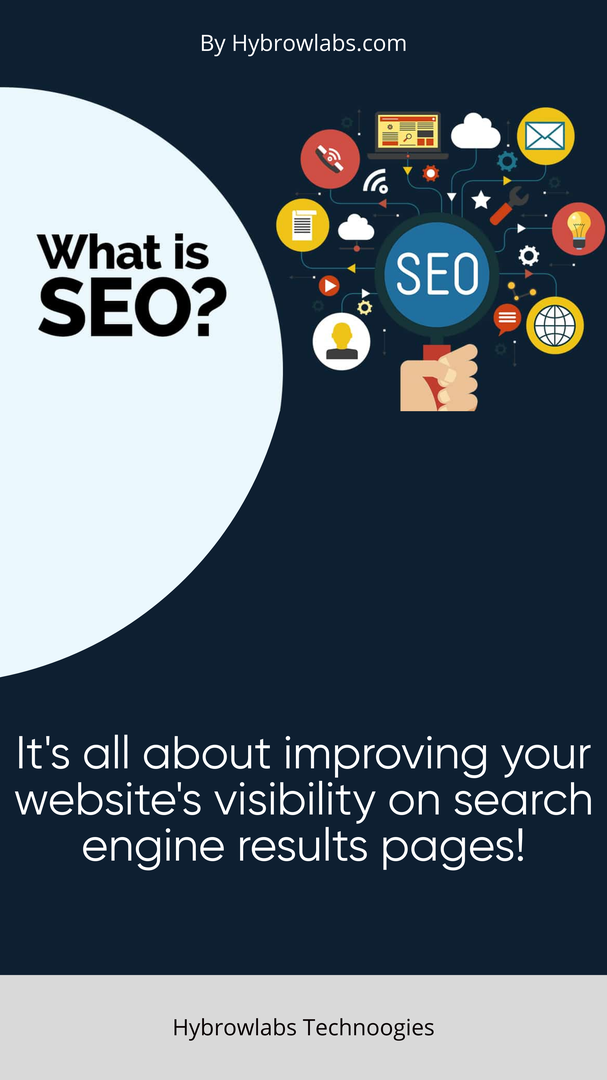
Search Engine Optimization, commonly known as SEO, refers to the process of improving the quality & quantity of website traffic by increasing the visibility of a website or a web page on search engine results pages (SERPs). It involves optimizing the content & structure of a website to rank higher in search results for relevant queries.
A Brief History of SEO:
The concept of SEO emerged in the mid-1990s with the rise of search engines like Yahoo! & AltaVista. However, it was not until the early 2000s when Google became the dominant search engine that SEO gained widespread attention. Over the years, SEO has evolved from a technical, keyword-stuffing practice to a user-centric approach that prioritizes relevance & quality of content.
Exploring the Evolution of SEO in the Age of Bing, Bard & ChatGPT:
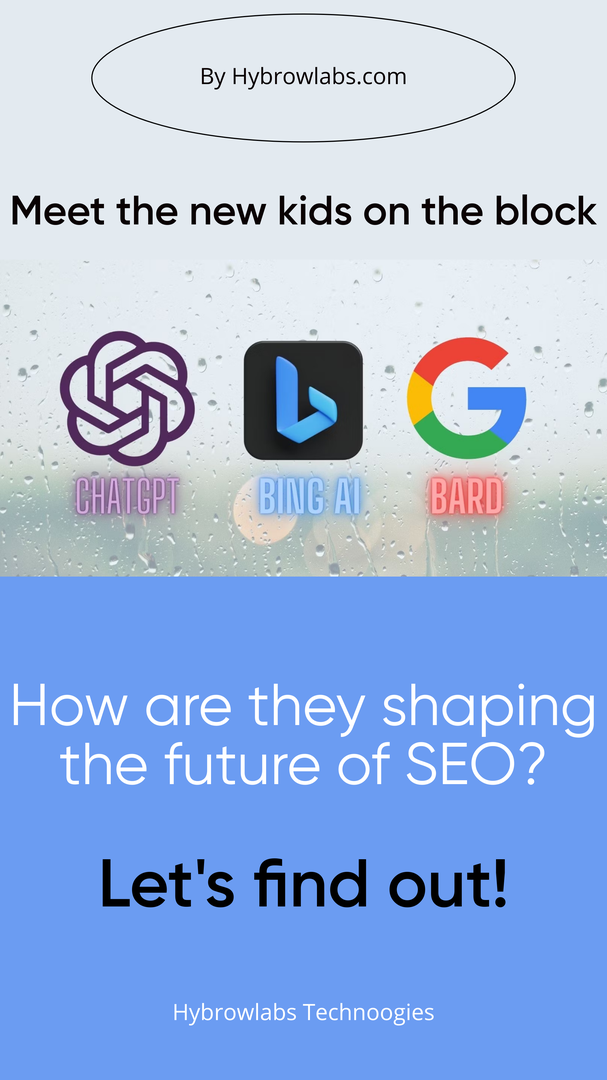
Search Engine Optimization (SEO) has undergone a significant transformation over the years, with the emergence of new search engines & advancements in natural language processing technology. In this article, we will discuss the changing landscape of SEO, with a particular focus on Bing & its impact on the industry.
The Emergence of New Search Engines:
The SEO industry has long been dominated by Google, which boasts over 90% of the global search engine market share. However, in recent years, new players such as Bing, Baidu & Yandex have emerged, challenging Google's dominance. While Google's algorithm is still the benchmark for most SEO practices, it is essential to consider other search engines' unique features to optimize content effectively.
The Rise of Bing:
Bing is Microsoft's search engine, launched in 2009 & it has been gaining traction ever since. While Bing's market share is still relatively small compared to Google, it has shown steady growth over the years. Bing's primary focus is on providing high-quality search results to users, which it achieves through a combination of machine learning algorithms & human curation.
Bing's Impact on SEO:
Bing's unique features have made it a popular choice for many businesses looking to diversify their SEO strategy. Unlike Google, Bing places significant emphasis on social media signals & backlinks, which means that businesses with a strong social media presence are more likely to rank higher on Bing. Additionally, Bing's focus on content quality means that it rewards long-form content with more in-depth information & encourages businesses to provide comprehensive information to users.
Differences between Bing & Google:
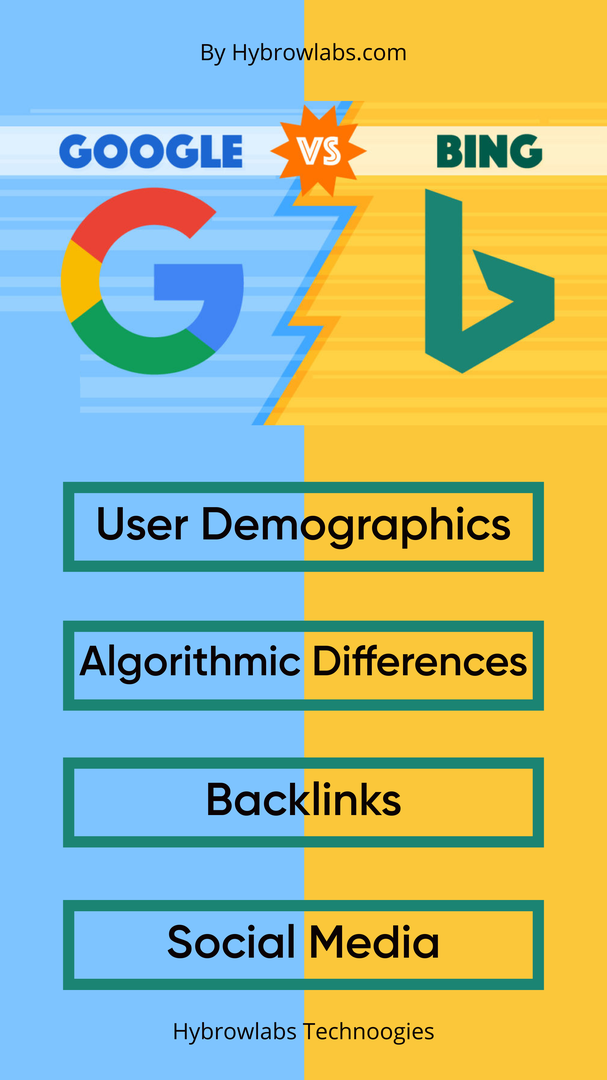
- User Demographics: Google dominates the search engine market share with over 90% of global users. However, Bing has a significant market share of 2.7% & caters to a different user demographic. Bing users are typically older, more affluent & have higher education levels than Google users. Therefore, if your target audience falls under this demographic, optimizing your website for Bing can be beneficial.
- Algorithmic Differences: Google's algorithm is more complex & sophisticated than Bing's, which means it can understand more complex queries & user intent. However, Bing's algorithm is more straightforward & relies more on keyword usage & meta tags. Therefore, optimizing for Bing requires a more traditional approach to SEO with a focus on relevant keywords & meta tags.
- Backlinks: Backlinks are an essential factor in SEO & Google places a greater emphasis on the quality of backlinks rather than quantity. Bing, on the other hand, places more importance on the number of backlinks, which means it is easier to achieve a higher ranking on Bing with a higher number of backlinks. However, it is essential to note that spammy & low-quality backlinks can harm your website's ranking on both search engines.
- Social Media: Google & Bing both take social media signals into account when ranking websites. However, Google places a higher emphasis on social media engagement & shares, while Bing focuses more on social media authority & influence. Therefore, optimizing your social media presence can have a significant impact on your website's ranking on both search engines.
- Local Search: Bing has a stronger focus on local search results than Google, with a dedicated 'Local Listing Center' for businesses to optimize their local search presence. Therefore, if you are a local business, optimizing for Bing can be beneficial in driving more traffic to your website.
Navigating the Changing Landscape of SEO:
As SEO continues to evolve, businesses must keep up with the latest trends & adapt their strategies accordingly. Here are some tips for navigating the changing landscape of SEO:
- Keep up with the latest trends & updates from search engines.
- Focus on providing high-quality content that provides value to users.
- Emphasize social media signals & backlinks to improve your visibility on Bing.
- Prioritize user experience & mobile optimization to ensure your website is accessible on all devices.
- Invest in natural language processing technology to create content that is optimized for voice search.
The Emergence of Bard:
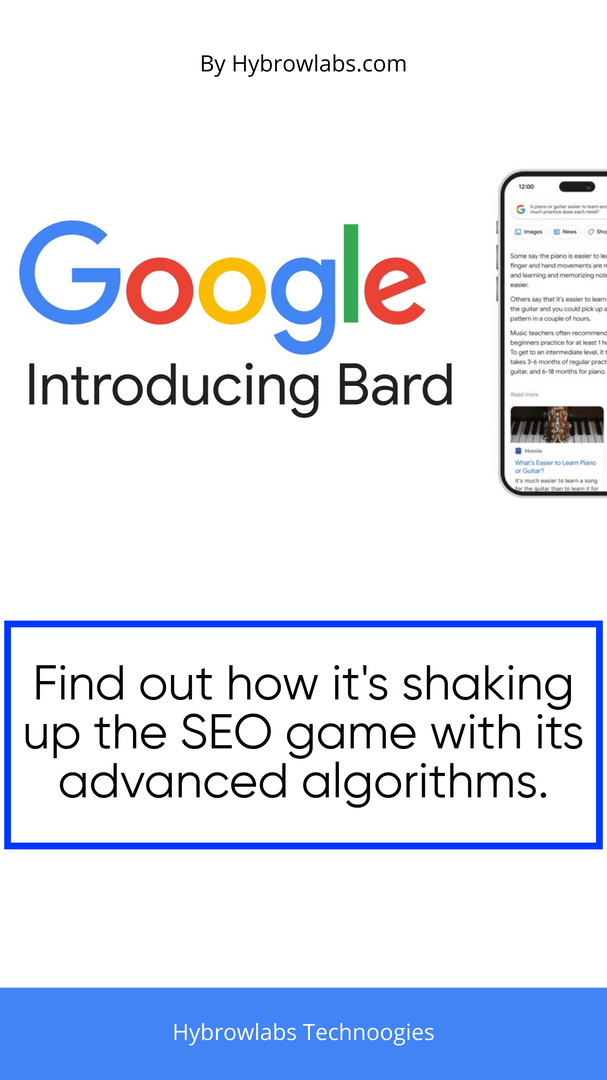
Bard is an AI-powered search engine launched by google. It was released in 2022 & since then, it has been gaining popularity due to its unique features & capabilities. Unlike traditional search engines that rely on keywords, links & content, Bard uses advanced natural language processing (NLP) algorithms to understand user queries & provide more accurate results.
What are the various Impacts that Bard possesses on SEO?
Bard's emergence has significant implications for SEO. Here are some of the ways it impacts SEO:
- Focus on quality content: With Bard, content quality is more critical than ever. The search engine's advanced NLP algorithms can identify poorly written or irrelevant content, making it difficult for websites to rank higher. To succeed with Bard, businesses must focus on creating high-quality, engaging & relevant content.
- Semantic search: Bard's advanced NLP algorithms enable it to understand the context of search queries & provide more accurate results. This means businesses need to focus on creating content that answers specific user questions & addresses their needs.
- Voice search: Bard's focus on NLP makes it particularly suited to voice search queries. As more people use voice assistants like Siri, Alexa & Google Assistant, businesses need to optimize their content for voice search to remain competitive.
- Personalization: Bard's advanced algorithms enable it to personalize search results based on user behavior & preferences. This means businesses need to focus on creating personalized content that resonates with their target audience.
How Bard Differs from Google & Bing:
Bard differs from Google & Bing in several ways, including:
- NLP algorithms: Bard's advanced NLP algorithms make it better suited to understand natural language queries & provide more accurate results.
- Focus on content quality: Bard's emphasis on content quality means businesses must focus on creating high-quality, engaging & relevant content to rank higher.
- Personalization: Bard's ability to personalize search results makes it more user-centric than Google or Bing.
- Voice search: Bard's focus on NLP algorithms makes it particularly suited to voice search queries, which is not the case for Google or Bing.
The Role of ChatGPT:
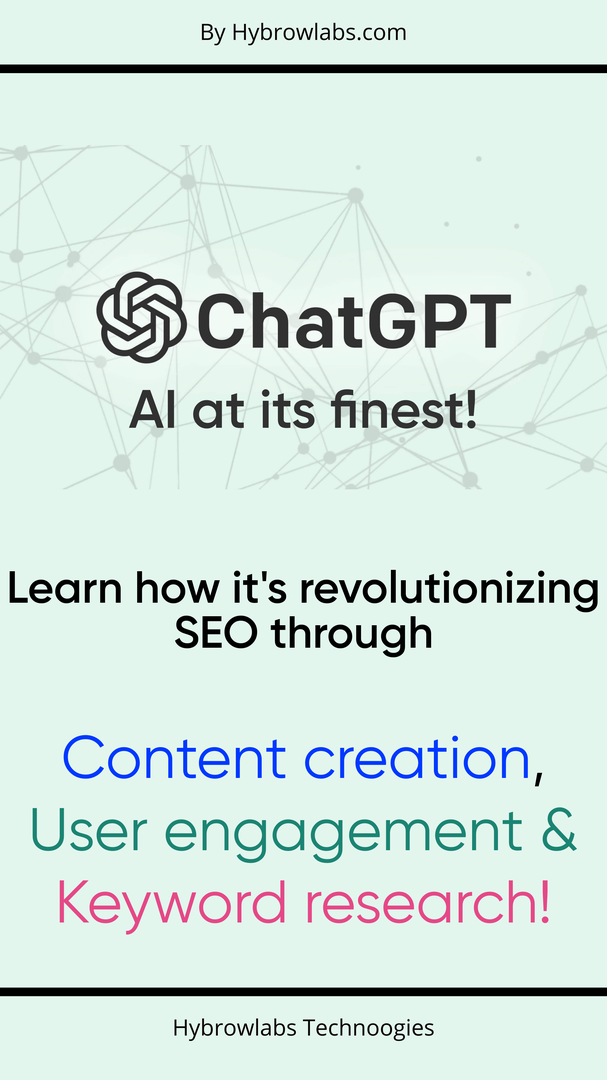
ChatGPT is an AI-based language model developed by OpenAI that uses deep learning to generate human-like text. It has the ability to understand & respond to natural language queries in a way that mimics human conversation. As a result, ChatGPT has the potential to revolutionize the way we approach SEO.
ChatGPT's Impact on SEO:
- Improved Content Creation: ChatGPT can be used to generate high-quality, relevant content for websites. It has the ability to understand the context of a topic & generate content that is both informative & engaging.
- Better User Engagement: ChatGPT can be used to create chatbots that provide personalized responses to user queries. This can improve user engagement & lead to higher conversion rates.
- Enhanced Keyword Research: ChatGPT can be used to identify long-tail keywords & understand user intent. This can help businesses to create more targeted & effective SEO strategies.
The Benefits & Limitations of Using ChatGPT for SEO:
Benefits:
- Improved Content Creation: ChatGPT can help businesses create high-quality, engaging content that is optimized for search engines. The AI-powered model can generate content based on specific keywords & topics, helping businesses to create content that is both relevant & informative.
- Better User Engagement: ChatGPT can also help businesses improve user engagement by creating content that is more engaging & interactive. The model can generate chatbots & virtual assistants that can interact with users in real time, providing them with the information they need & keeping them engaged with the brand.
- Enhanced Keyword Research: ChatGPT can also assist with keyword research by generating new & relevant keywords based on user search queries. This can help businesses to identify new opportunities for optimization & stay ahead of the competition.
Limitations:
- Lack of Control: While ChatGPT can generate high-quality content, businesses may not have as much control over the content as they would with human writers. This can result in content that is not fully aligned with the brand's messaging or tone.
- Limited Accuracy: ChatGPT is still an AI-powered model, which means that its accuracy is not perfect. The model may generate content that is not fully accurate or relevant to the user's search query, which can negatively impact the brand's SEO efforts.
- Dependence on Third-Party Platforms: Businesses that use ChatGPT for SEO will need to rely on third-party platforms to access the model's capabilities. This can create a dependency on these platforms, which may not always be reliable or accessible.
How chatbots are becoming more important for locating goods & services:
Chatbots are becoming increasingly important in helping people locate goods & services in small local areas. With the rise of e-commerce & online shopping, it can be difficult for people to know where to find certain products or services in their local community. Chatbots can provide a convenient & personalized way for people to locate these items.
By using natural language processing & artificial intelligence, chatbots can understand user requests & provide relevant information about local businesses & services. For example, a user could ask a chatbot for recommendations on where to find a certain type of cuisine or where to purchase a specific product & the chatbot could provide a list of local options based on the user's location.
Is SEO Still Relevant?
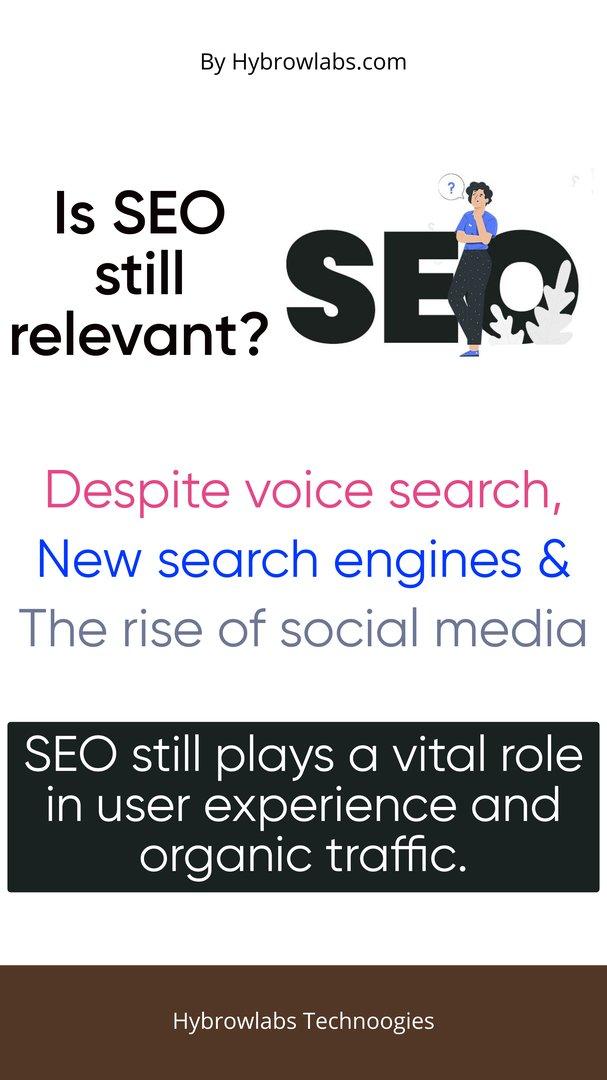
Factors that suggest SEO is still important:
- User Experience: Search engines have become smarter & their algorithms have become more sophisticated, making user experience (UX) a critical factor in search engine rankings. SEO plays a crucial role in optimizing websites for UX by focusing on page speed, mobile responsiveness & user-friendly content.
- Organic Traffic: Organic traffic is the lifeblood of any website & SEO is still the most effective way to drive organic traffic. A well-executed SEO strategy can help businesses improve their visibility in search engine results pages (SERPs), leading to increased traffic, leads & revenue.
- Cost-Effective: Compared to other digital marketing strategies, SEO is cost-effective & delivers a high ROI. Although it takes time to see results, once your website starts ranking higher in SERPs, you'll reap the benefits for a long time.
Factors that suggest SEO is becoming less important:
- The Rise of Voice Search: With the increasing popularity of smart speakers & voice assistants, voice search has become a significant trend in search engine behavior. Voice search queries are typically longer & more conversational than text-based queries, making it harder to optimize for specific keywords.
- The Emergence of New Search Engines: As mentioned earlier, new search engines like Bing, Bard & ChatGPT are challenging Google's dominance in the search engine market. These search engines use AI-powered algorithms to understand user intent & deliver more personalized search results, making it harder to optimize for traditional SEO strategies.
- The Growing Importance of Social Media: Social media platforms have become powerful search engines in their own right, with users often turning to platforms like Facebook, Instagram & Twitter to search for information. Therefore, businesses need to have a strong social media presence to complement their SEO efforts.
Conclusion:
In conclusion, the world of SEO is constantly changing, and businesses must adapt to stay ahead. To succeed in this new era, businesses must focus on providing high-quality, relevant content that meets the needs of their target audience. By utilizing services like Hybrowlabs Development Services, they can stay up-to-date on the latest SEO trends and techniques, and be willing to experiment and adapt as needed. In doing so, businesses can navigate the changing landscape of search engine optimization and stay ahead of the competition in the years to come.
FAQ
1. What is the changing landscape of SEO & how is it affecting businesses?
The changing landscape of SEO refers to the shift in search engine algorithms, including the rise of new search engines like Bing & the emergence of AI-powered language models like GPT-3. This is affecting businesses by requiring them to adapt their SEO strategies to stay ahead of the curve & maintain their search engine rankings.
2. How do Bing & other search engines differ from Google in terms of SEO?
Bing & other search engines have their own unique algorithms & ranking factors, which means that SEO strategies must be tailored to each individual search engine. For example, Bing places a greater emphasis on social signals, while Google values backlinks more highly.
3. What role does AI play in the future of SEO?
AI-powered language models like GPT-3 are becoming increasingly important in the world of SEO. These models are able to understand natural language queries & provide more accurate & relevant search results, which means that businesses will need to optimize their content for AI-powered search engines in order to stay competitive.
4. How can businesses adapt their SEO strategies to the changing landscape?
Businesses can adapt their SEO strategies by staying up to date with the latest trends & best practices in the industry, as well as by optimizing their content for a range of search engines & algorithms. This may involve investing in AI-powered tools & technologies, as well as focusing on user experience & content quality.
5. Is traditional SEO still relevant in the age of Bing, Bard & ChatGPT?
Traditional SEO is still relevant, but it is evolving to incorporate new technologies & strategies. Businesses that want to succeed in the changing landscape of SEO will need to focus on a holistic approach that includes traditional SEO techniques as well as newer approaches like AI-powered optimization & content strategy.



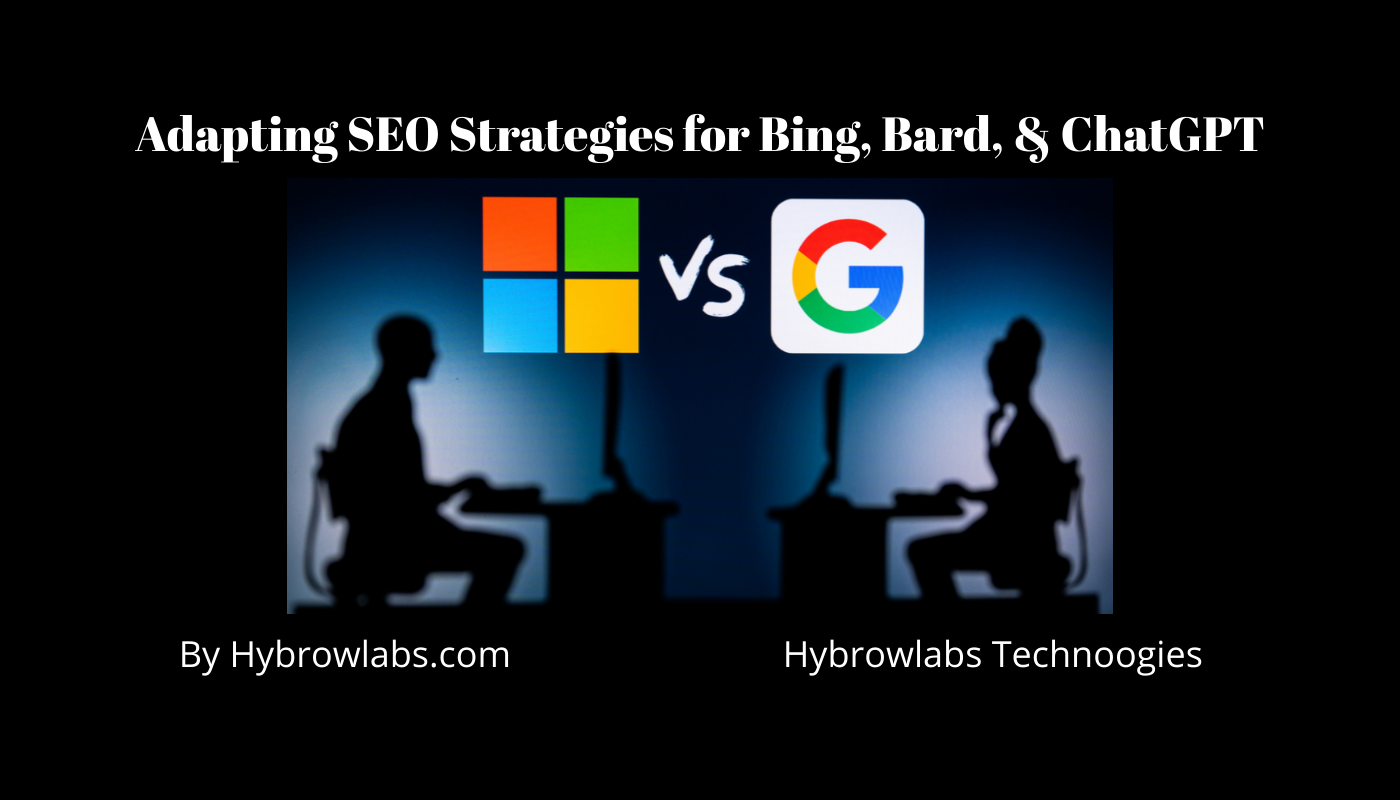


a3dc85.jpg)
.jpg)
fd8f11.png)

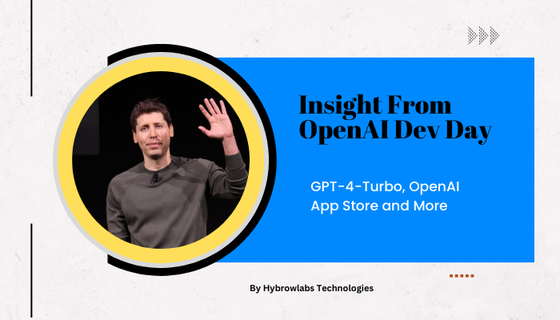
.jpg)
.jpg)